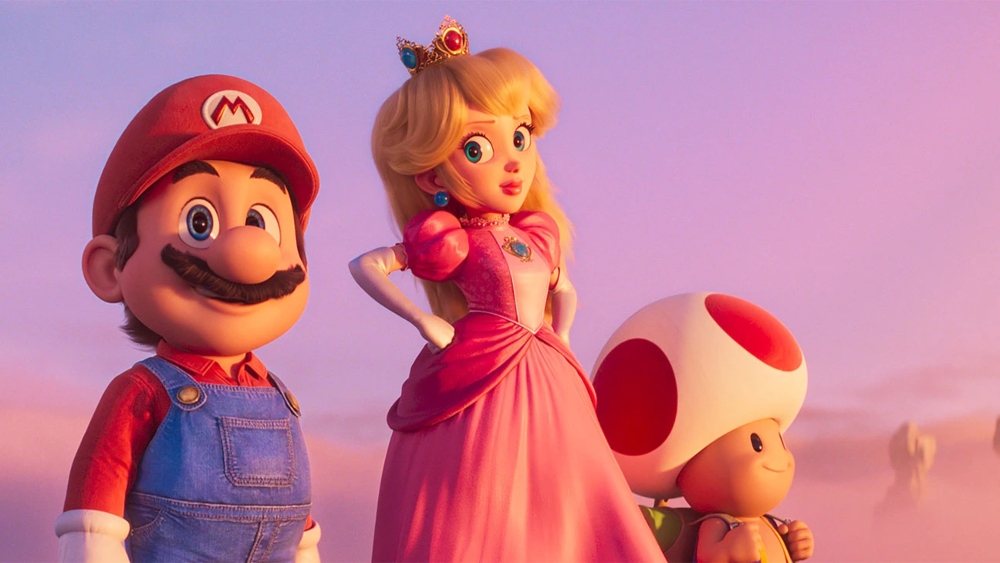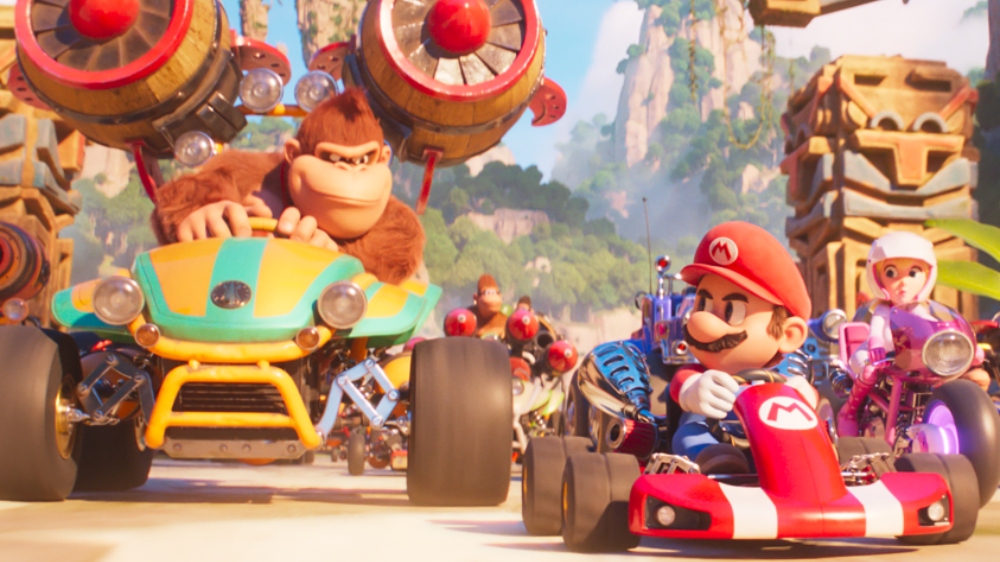Ever since Mario, the over-confident plumber from Brooklyn, and his dopey brother, Luigi, made it big in 8 bits back in the 1980s, the world of video games — and the Mushroom Kingdom — has never been the same. But few video games have taken the world of film by storm. The Super Mario Bros. Movie, the new collaboration between Universal Pictures and Illumination, is a beautifully animated and amusing but mostly empty film that will provide catnip for hardcore gamers and Nintendo devotees but not much in terms of a story for casual fans.
When the adventure begins, Mario is struggling to find a purpose at home. The mustachioed plumber is voiced by Chris Pratt, and that is the film’s first problem. Pratt is funny as far as animation goes, but when Mario first learned to speak it was when he turned himself into 64 bits in Super Mario 64 and was voiced by Charles Martinet. “It’s a-me, Mario!” may have been the single most important phrase in the history of video games, and while Martinet appears in various supporting voice roles in this film, the choice to give the lead to Pratt exposes what the studio really cares about — profits instead of fans.
Accordingly, the rest of the familiar characters, from Luigi and Princess Peach to Toad and Bowser himself are also voiced by Hollywood heavyweights — Charlie Day, Anya Taylor-Joy, Keegan-Michael Key, and Jack Black, respectively. This star-studded voice cast is meant to appeal to mainstream audiences rather than fans of the games, which would be fine if the approach wasn’t totally at odds with the rest of the movie.

In screenwriter Matthew Fogel‘s version of the story, Mario and Luigi head down the wrong pipe and find themselves lost in the mysterious Mushroom Kingdom, where Princess Peach rules, anthropomorphic creatures like Donkey Kong (Seth Rogen) abound, and the evil Bowser wants to take over with the help of his wizard adviser Kamek (Kevin Michael Richardson). This is similar to the story told in the original cartoons featuring these famous characters, which is fine as far as it goes, as is the conceit of Luigi’s disappearance, which is the plot of at least a couple of the Mario games that don’t put the Princess in peril. The more original plot element here is the concept of Mario having to find his power — his firepower, his raccoon/Tanooki power, and other abilities he has gained throughout the decades and the consoles, though even that device is well-worn within the modern comic book movie.
Soon, Mario, guided by Peach and Toad, is off on his multilevel adventure to stop the evil Bowser. At every stop, Fogel and Directors Aaron Horvath and Michael Jelenic make sure to insert Easter Eggs (’tis the season!) and cute references to plot points in the dozens of games that the devoted Mario Bros. disciples have played to exhaustion. The whimsical, playful score by Composers Koji Kondo and Brian Tyler is a definite highlight almost from the get-go, considering that the former is the brilliant creative talent behind most of the music in the console versions of this colorful world, as well as the Legend of Zelda franchise.
Mario and his buddies encounter a bevy of characters that range from cute (the little penguins that showed up in Mario 64) to menacing, and there are mini-games and vignettes like the Mario Kart racing scene that make the movie feel at times like an extended round of Mario Party. As in the Mario games, you know the outcome even if they do the whole “the Princess is in another castle” routine for a while. But it feels more satisfying to get even to a predictable resolution when you have to work hard for it, and the reward is in the journey. When you are being spoon-fed the steps to get to the finale in a multiplex, it seems infinitely duller.

If it sounds like I’m down on The Super Mario Bros. movie, it is only because I’m a tremendous, lifelong fan of these characters and the various products that bear their names. Mario always finds a way to reinvent and reassert himself via new adventures, stronger challenges, and more textual worlds. The film, by contrast, appears lost amidst a sea of superhero adventures, and never quite finds its footing as something anyone except the diehards should care about. In fact, even the video game can actually end in “game over” for a player who’s unable to surpass a certain obstacle. In Hollywood, by contrast, the only thing that actually signals “the end” is a post-credit scene, which, of course, this film features, too.
Ultimately, The Super Mario Bros. Movie is a terrible exemplification of a studio resting on the laurels of the popularity of a brand rather than expending any real creative effort. This approach is a startling and disappointing one to have connected to a franchise that has been persistently and rightfully successful because of its indelible work ethic and endless creativity.
After the colossal failure of the 1993 live-action movie, Nintendo was understandably reluctant to go back to the well of feature films. After all, it didn’t need the money, nor the boost to Mario’s core product — video games — which are already wildly successful. The company’s skepticism was proven correct in this instance, for however well-intentioned The Super Mario Bros. Movie is, and no matter how much I sincerely hope for a sequel, the film’s ultimate execution makes you wish that someone at Universal or Illumination had taken out the cartridge, blown on it like a hot pizza, and pressed the reset button at some point in the process.
Grade: B-
The Super Mario Bros. Movie is now playing in theaters nationwide courtesy of Universal Pictures.





